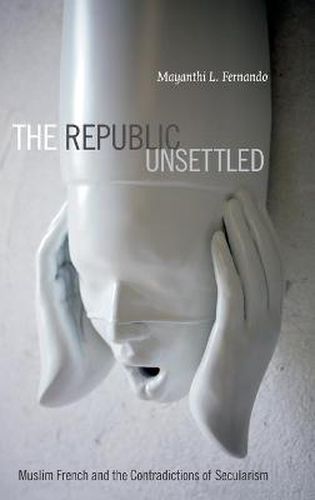Readings Newsletter
Become a Readings Member to make your shopping experience even easier.
Sign in or sign up for free!
You’re not far away from qualifying for FREE standard shipping within Australia
You’ve qualified for FREE standard shipping within Australia
The cart is loading…






In 1989 three Muslim schoolgirls from a Paris suburb refused to remove their Islamic headscarves in class. The headscarf crisis signaled an Islamic revival among the children of North African immigrants; it also ignited an ongoing debate about the place of Muslims within the secular nation-state. Based on ten years of ethnographic research, The Republic Unsettled alternates between an analysis of Muslim French religiosity and the contradictions of French secularism that this emergent religiosity precipitated. Mayanthi L. Fernando explores how Muslim French draw on both Islamic and secular-republican traditions to create novel modes of ethical and political life, reconfiguring those traditions to imagine a new future for France. She also examines how the political discourses, institutions, and laws that constitute French secularism regulate Islam, transforming the Islamic tradition and what it means to be Muslim. Fernando traces how long-standing tensions within secularism and republican citizenship are displaced onto France’s Muslims, who, as a result, are rendered illegitimate as political citizens and moral subjects. She argues, ultimately, that the Muslim question is as much about secularism as it is about Islam.
$9.00 standard shipping within Australia
FREE standard shipping within Australia for orders over $100.00
Express & International shipping calculated at checkout
In 1989 three Muslim schoolgirls from a Paris suburb refused to remove their Islamic headscarves in class. The headscarf crisis signaled an Islamic revival among the children of North African immigrants; it also ignited an ongoing debate about the place of Muslims within the secular nation-state. Based on ten years of ethnographic research, The Republic Unsettled alternates between an analysis of Muslim French religiosity and the contradictions of French secularism that this emergent religiosity precipitated. Mayanthi L. Fernando explores how Muslim French draw on both Islamic and secular-republican traditions to create novel modes of ethical and political life, reconfiguring those traditions to imagine a new future for France. She also examines how the political discourses, institutions, and laws that constitute French secularism regulate Islam, transforming the Islamic tradition and what it means to be Muslim. Fernando traces how long-standing tensions within secularism and republican citizenship are displaced onto France’s Muslims, who, as a result, are rendered illegitimate as political citizens and moral subjects. She argues, ultimately, that the Muslim question is as much about secularism as it is about Islam.